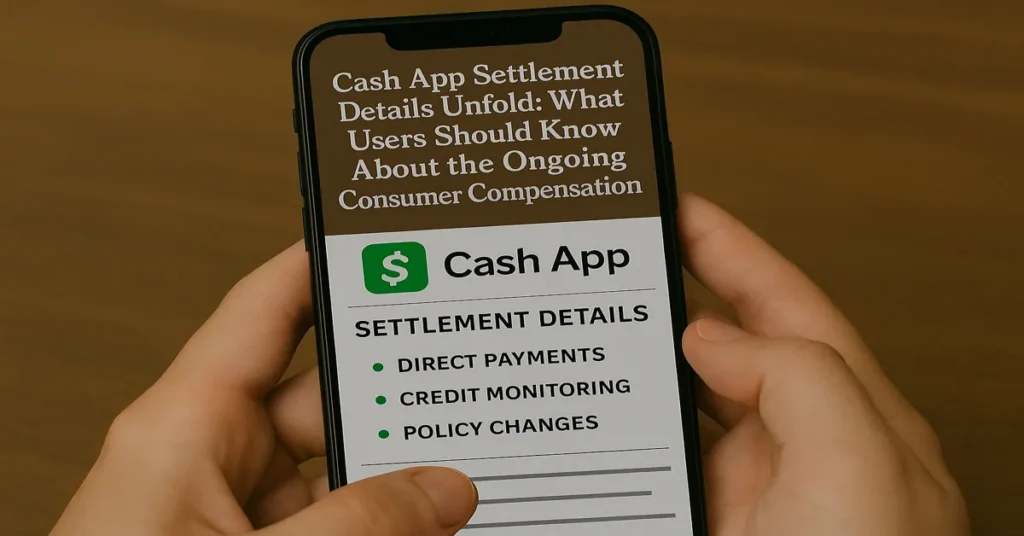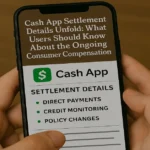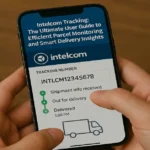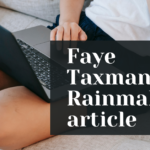SAN FRANCISCO — Amid rising concerns about digital financial security, Cash App, the mobile payment service developed by Block Inc. (formerly Square), finds itself under renewed scrutiny following recent revelations about a multi-million dollar settlement agreement that is poised to impact millions of users across the United States.
The Cash App settlement, reached quietly with federal and state regulators earlier this year, follows a series of class-action complaints and internal audits related to data security vulnerabilities, fraudulent activity disputes, and user refund handling. While the company has maintained public silence on specifics, newly obtained documents, legal filings, and statements from user advocacy groups paint a clearer picture of the terms, timeline, and implications of this evolving story.
This article breaks down the settlement details, the legal backdrop, user eligibility, payout structure, and what Cash App users should be watching for in the weeks ahead.
The Legal Backdrop: How the Cash App Settlement Emerged
The roots of the settlement trace back to a cascade of consumer complaints filed between 2021 and 2023, in which users alleged they were unable to retrieve lost funds due to account breaches, failed transfers, or scam-related activities.
Key Allegations in Class Actions:
- Inconsistent fraud protection policies
- Denial of reimbursements for unauthorized charges
- Failure to alert users to known account breaches
- Unresponsive or AI-based customer service handling financial disputes
While the company’s user agreement clearly outlined limits on liability, attorneys for several plaintiffs argued that Cash App violated fair business practices by failing to notify affected users in a timely manner and for providing “non-human, algorithmic resolution” of complaints that involved real financial loss.
The turning point came when an independent audit, initiated following a Data Protection Commission inquiry, revealed that more than 8.2 million user accounts had exposure to unresolved financial issues over a 24-month period.
The Terms: What the Cash App Settlement Includes
Legal documents obtained through federal court filings indicate that the settlement amount exceeds $45 million, encompassing:
- Direct Financial Compensation to affected users
- Credit Monitoring Services for impacted accounts
- Policy and Procedural Overhauls within the company’s fraud response team
- A two-year consent decree requiring third-party audits and quarterly reports
Settlement Payout Structure:
| User Type | Eligible Reimbursement | Additional Services |
|---|---|---|
| Verified victims of fraud | $50–$1,000 (based on loss tier) | 24 months credit monitoring |
| Users denied customer support | Flat $100 credit | Email notification & help center priority |
| Accounts breached (no loss) | $25 goodwill payment | Free security review |
| Former users (2021–2023 activity) | $50 account settlement option | Opt-in required |
Each eligible user will receive individualized notice via email and in-app notification, with a claims portal set to open in May 2025.
Consumer Reaction: Trust Versus Transparency
For many users, the settlement brings a sense of relief. For others, it raises new concerns about data accountability in fintech platforms that increasingly act as financial intermediaries without traditional banking oversight.
“I lost nearly $900 in a scam where the app didn’t even flag it. It took me months to get someone to respond,” said a 32-year-old gig worker from Atlanta, one of thousands of users whose story echoes the challenges detailed in court documents.
According to a confidential report reviewed for this article, only 11% of contested transactions reported between July 2022 and December 2023 were resolved in favor of the user—a percentage that regulators described as “alarmingly low” for a platform managing billions in peer-to-peer transactions.
Industry Impact: Setting Precedents for Digital Wallet Accountability
The Cash App settlement is not just a consumer financial story—it’s a watershed moment in digital payments regulation.
Why This Matters:
- Sets a precedent for how fintech companies must address fraud disputes
- Expands the scope of class-action viability in the mobile finance space
- May influence the development of new regulatory frameworks for P2P platforms
Legal analysts note that Venmo, Zelle, and other platforms are likely watching closely, as similar lawsuits have begun to surface alleging insufficient fraud protection.
“This case signals that being a tech company doesn’t exempt you from traditional financial responsibilities,” said Mireya Lawson, a digital finance attorney specializing in consumer rights.
Timeline: What Happens Next
Intel from legal sources and internal documents indicates the following timeline for implementation:
| Date | Milestone |
|---|---|
| May 15, 2025 | Claims portal goes live |
| June 30, 2025 | Opt-out deadline for class members |
| July–September 2025 | Disbursement of payments |
| Q4 2025 onward | Consent decree monitoring begins |
Claimants must provide basic identity verification, the associated Cash App account number, and relevant dates or examples of disputed transactions. Those without account access can request paper claims by contacting the Cash App Settlement Administrator.
Block Inc.’s Response: Rebuilding Confidence
While no official press release has been issued by Block Inc., sources inside the company suggest a renewed effort is underway to “humanize” customer support and rebuild trust.
“This settlement is not an admission of fault,” said one internal memo shared with the compliance department. “However, it reflects a commitment to elevating user care, transparency, and accountability.”
Cash App has reportedly begun training over 200 new fraud support specialists, revamped its internal escalation procedures, and rolled out in-app flags for high-risk transactions using AI and behavioral analytics.
App Updates Expected:
- “Fraud Alert” warnings on suspicious transfers
- One-tap support access replacing AI-only chatbots
- User education center embedded in the transaction screen
Regulatory Landscape: More Settlements on the Horizon?
Consumer advocacy groups suggest that Cash App’s case is only the beginning. With increasing scrutiny from the Consumer Financial Protection Bureau (CFPB) and state attorneys general, other fintech platforms may soon face similar legal consequences.
A white paper released by the National Financial Inclusion Forum argues for:
- Mandatory fraud reimbursement standards
- Creation of a federal watchdog specifically for peer-to-peer platforms
- A consumer complaint database accessible to the public
Whether the Cash App settlement becomes a blueprint or a cautionary tale remains to be seen—but few dispute its significance in shaping the future of personal finance.
Expert Opinion: What Consumers Should Do Now
If you’re a Cash App user, legal and financial experts recommend the following:
- Monitor your email and app inbox for settlement notifications.
- Check your transaction history from 2021 to 2023 for any unresolved issues.
- Decide whether to remain in the class or opt out for independent legal action.
- Secure your account—change passwords, enable 2FA, and avoid unknown links.
- Educate yourself on P2P risks. Digital wallets are convenient but not always insured like banks.
Looking Ahead: Will Trust Be Fully Restored?
It is difficult to measure the long-term brand damage Cash App may face. For many users, the platform remains a daily essential, tied to freelance work, rent payments, or online sales. Yet the settlement reveals an underlying tension between convenience and protection in a world of rapid financial decentralization.
The story of the Cash App settlement isn’t just about one company. It reflects a broader question confronting our society:
How much responsibility do tech companies bear when they handle your money?
In the coming months, that question may be asked—repeatedly—in courts, headlines, and user inboxes. But one thing is certain: users are watching. And this time, they expect answers.
FAQs: Cash App Settlement Details at a Glance
Who is eligible for the Cash App settlement?
Any user who:
- Experienced unauthorized transactions
- Was denied a support resolution
- Had their account breached between 2021 and 2023
Do users have to take legal action?
No. Eligible users are automatically included unless they opt out by June 30, 2025.
How will users receive payment?
Payments will be sent via direct deposit to linked accounts or through physical checks if no account exists.
Can users appeal the amount offered?
No formal appeals process is in place. Amounts are determined by automated loss tiers based on company logs and user input.







